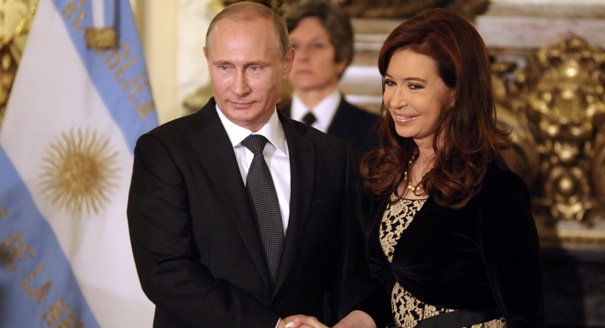Vladimir Putin's trip to Latin America is aimed to demonstrate several things. One, that Russia is a global, not a regional power, as Barack Obama recently described it. Conferring with leaders in the U.S.'s own backyard is a sure way to send that message. Two, that Russia's expulsion from the G8 only stimulates Moscow to work more closely with non-Western partners. The agreement on a BRICS bank, taken at the summit in Brazil's Fortaleza, advances the group beyond the summitry stage. Three, Moscow is not only defending its own interests vis-a-vis the United States; it appears ready to take up the grievances of others, whether the blockade of Cuba by the United States or the Falklands/Malvinas dispute between Argentina and the United Kingdom.
In contrast to the Chinese expansion to Latin America, which is almost all economics, Russia's engagement is increasingly laden with geopolitics. Vladimir Putin's meeting with 87-year-old Fidel Castro was symbolic, as a linking of two epochs. The last time Putin visited Havana in 2000, he closed down the Russian intelligence gathering facility in Lourdes, as a good will gesture toward the United States. In Putin's view, his outreach then, and after 9/11, was not sufficiently appreciated in Washington. With Russia's future naval and Air Force presence in Nicaragua, no matter how limited, Latin America will add to the agenda of U.S.-Russian relations. Fidel may chuckle.





